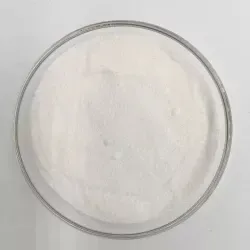Warning: Undefined array key "title" in /home/www/wwwroot/HTML/www.exportstart.com/wp-content/themes/1198/header.php on line 6
Warning: Undefined array key "file" in /home/www/wwwroot/HTML/www.exportstart.com/wp-content/themes/1198/header.php on line 7
Warning: Undefined array key "title" in /home/www/wwwroot/HTML/www.exportstart.com/wp-content/themes/1198/header.php on line 7
Warning: Undefined array key "title" in /home/www/wwwroot/HTML/www.exportstart.com/wp-content/themes/1198/header.php on line 7
- Afrikaans
- Albanian
- Amharic
- Arabic
- Armenian
- Azerbaijani
- Basque
- Belarusian
- Bengali
- Bosnian
- Bulgarian
- Catalan
- Cebuano
- China
- China (Taiwan)
- Corsican
- Croatian
- Czech
- Danish
- Dutch
- English
- Esperanto
- Estonian
- Finnish
- French
- Frisian
- Galician
- Georgian
- German
- Greek
- Gujarati
- Haitian Creole
- hausa
- hawaiian
- Hebrew
- Hindi
- Miao
- Hungarian
- Icelandic
- igbo
- Indonesian
- irish
- Italian
- Japanese
- Javanese
- Kannada
- kazakh
- Khmer
- Rwandese
- Korean
- Kurdish
- Kyrgyz
- Lao
- Latin
- Latvian
- Lithuanian
- Luxembourgish
- Macedonian
- Malgashi
- Malay
- Malayalam
- Maltese
- Maori
- Marathi
- Mongolian
- Myanmar
- Nepali
- Norwegian
- Norwegian
- Occitan
- Pashto
- Persian
- Polish
- Portuguese
- Punjabi
- Romanian
- Russian
- Samoan
- Scottish Gaelic
- Serbian
- Sesotho
- Shona
- Sindhi
- Sinhala
- Slovak
- Slovenian
- Somali
- Spanish
- Sundanese
- Swahili
- Swedish
- Tagalog
- Tajik
- Tamil
- Tatar
- Telugu
- Thai
- Turkish
- Turkmen
- Ukrainian
- Urdu
- Uighur
- Uzbek
- Vietnamese
- Welsh
- Bantu
- Yiddish
- Yoruba
- Zulu
Aug . 10, 2024 10:05 Back to list
Exploring the Role of Aspartame in Sugar-Free Products and Its Impact on Health Choices
Understanding Aspartame in Sugar-Free Products
In recent years, the rise of health consciousness among consumers has led to a surge in the demand for sugar-free products. Among the various artificial sweeteners available in the market, aspartame is one of the most widely used. Aspartame, a low-calorie sweetener, is approximately 200 times sweeter than sucrose (table sugar), which makes it an appealing choice for food manufacturers aiming to reduce sugar content without sacrificing taste. This article explores the role of aspartame in sugar-free products, its benefits, controversies, and consumer perceptions.
Understanding Aspartame in Sugar-Free Products
One of the primary benefits of aspartame is that it does not contribute to tooth decay. Sucrose and other forms of sugar can lead to cavity formation and general dental health issues. Aspartame, being a non-nutritive sweetener, does not promote the growth of bacteria in the mouth, making it an ideal choice for individuals concerned about oral hygiene. Furthermore, the calorie reduction associated with aspartame consumption can aid in weight management and obesity prevention, which are increasingly significant public health issues today.
aspartame in sugar free

Despite its benefits, aspartame has been the subject of extensive scrutiny and controversy. Over the years, numerous studies have investigated its safety, with some raising concerns about potential health risks, including cancer and neurological disorders. Regulatory agencies, including the U.S. Food and Drug Administration (FDA) and the European Food Safety Authority (EFSA), have extensively reviewed the research and concluded that aspartame is safe for human consumption within established acceptable daily intake levels. Nevertheless, these safety assurances have not quelled dissenting opinions, and a segment of the population remains skeptical about the long-term effects of consuming artificial sweeteners.
Consumer perceptions of aspartame are shaped significantly by media coverage, anecdotal reports, and ongoing debates surrounding food safety. While some consumers actively seek out aspartame-containing products for their low-calorie benefits, others prefer to avoid artificial sweeteners altogether, opting for natural alternatives like stevia or monk fruit extract. The divergence in preferences illustrates a broader trend among consumers transitioning towards cleaner labels and whole-food products, often viewed as healthier options.
Manufacturers have responded to consumer demands by providing a growing array of sugar-free products, some of which utilize aspartame, while others focus on natural sweeteners. This diversification caters to different consumer preferences and dietary lifestyles, ensuring that individuals can find satisfying alternatives to traditional sugary foods.
In conclusion, aspartame plays a significant role in the sugar-free product landscape, offering benefits such as calorie reduction and tooth-friendly sweetness. However, the ongoing debates regarding its safety highlight the importance of informed consumer choice. As more individuals become increasingly conscious of their dietary habits, understanding the implications of ingredients like aspartame will be crucial for making healthy decisions. Ultimately, whether one chooses to embrace aspartame-filled products or opts for natural sweeteners, it is essential to do so within the context of a balanced and health-focused lifestyle.
Latest news
-
Certifications for Vegetarian and Xanthan Gum Vegetarian
NewsJun.17,2025
-
Sustainability Trends Reshaping the SLES N70 Market
NewsJun.17,2025
-
Propylene Glycol Use in Vaccines: Balancing Function and Perception
NewsJun.17,2025
-
Petroleum Jelly in Skincare: Balancing Benefits and Backlash
NewsJun.17,2025
-
Energy Price Volatility and Ripple Effect on Caprolactam Markets
NewsJun.17,2025
-
Spectroscopic Techniques for Adipic Acid Molecular Weight
NewsJun.17,2025

